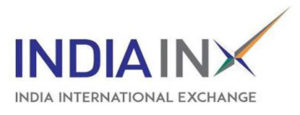MUMBAI, APRIL 4
Richcomm Global Services DMCC has become a Segregated Nominee Account Provider (SNAP) of India International Exchange (IFSC) Limited (India INX) on Thursday, an INX release said.

Richcomm Global Services DMCC can now provide services to its investors through the segregated nominee account structure, which was permitted by the SEBI at the IFSC in May 2018. As a Provider, Richcomm Global Services DMCC can enable its investors to access the index, currency, commodity derivatives and debt securities traded at the India INX under the new SNAP structure.
The SEBI has permitted three types of entities to register as Providers with the exchanges at the IFCS and they are: SEBI-registered brokers at GIFT IFSC, SEBI-registered FPIs (Category I and II) and trading members/clearing members of international stock exchanges/clearing corporations regulated by a member of FATF
Commenting on this, V Balasubramaniam, MD & CEO, India INX said, “We are delighted to have Richcomm Global Services DMCC as SNAP (segregated nominee account provider) of India INX and GIFT City IFSC. SNAP is a unique concept which applies only to GIFT IFSC and permitted by SEBI. SNAP will be able to seamless onboard foreign investors from all eligible FATF approved jurisdictions and enable them to trade on India INX with complete anonymity. This is a great boost towards ease of business in the IFSC.”
The segregated nominee account structure is a unique and innovative mechanism that facilitates easy access for foreign investors to IFSC by routing orders through eligible Providers while adhering to regulatory requirements, inter alia, relating to identification of end-client, client level order placement, margining and position limit management. The structure is modelled on the internationally prevalent segregated omnibus account structure. The SNAP structure provides accelerated on-boarding of investors, margin funding by Providers for investors after entering into valid agreements, sophisticated risk management through grossing of margins across Provider and investor positions, lower overhead costs for trading members and investors participating in the markets, etc, the release added.












